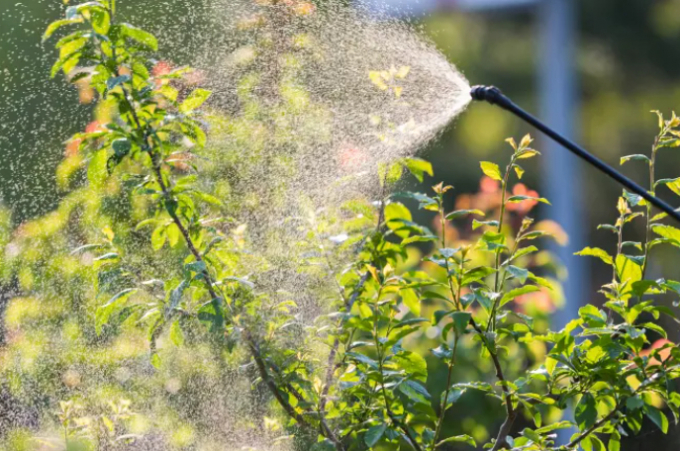November 27, 2025 | 10:03 GMT +7
November 27, 2025 | 10:03 GMT +7
Hotline: 0913.378.918
November 27, 2025 | 10:03 GMT +7
Hotline: 0913.378.918

Damaging pesticides are now banned in more places, especially those open to the public Pic: Fotokostic / Shutterstock
Pesticide use has been banned from more places in France in a new decree, including private gardens, hotels, campsites, theme parks, healthcare establishments, sports facilities, and cemeteries.
The new decree came into force on July 1. It extends the scope of the Labbé law (loi Labbé), which bans the use of phytosanitary products in green spaces.
These products can no longer be used to maintain green spaces, pathways, forests, or other green areas in these spaces or attractions.
They include private spaces and those used by the public.
The full list of spaces in which pesticide use is now banned
Private residential properties, including their outdoor areas
Hotels, hostels, lodgings, camping sites and residential leisure parks
Cemeteries
Allotments;
Amusement, entertainment and recreation parks with a variety of activities and facilities;
Areas accessible to the public in areas intended for commercial and service activities;
Private access roads, green areas and rest areas in workplaces (except where necessary for safety reasons);
Areas for public use in educational establishments
Health establishments, nursing homes and health centres, including their green spaces, forests, roads or pathways accessible or open to the public
Social and medical establishments, except establishments that are providing or participating in vocational training, or providing assistance through work that could potentially lead to the use of these products, including their green spaces, their forests, their roads, or their promenades accessible or open to the public;
The homes of childcare assistants and the homes of childcare assistants who take in minors, including their green spaces;
Aerodromes assigned primarily to the Ministry of Civil Aviation, with the exception of areas where treatment is necessary for reasons of aeronautical safety or airport security;
Sports facilities.
There are two exceptions to the sports facilities rule:
Playing fields, racecourses and grass tennis courts, where access is regulated, controlled and reserved for users;
Golf courses and driving ranges. Only the tees, greens and fairways are subject to the rules.
The ban will still come into force for these specific sports facilities, but only from January 1, 2025.
The law also does not apply to:
Treatments and measures necessary for the destruction and prevention of the spread of regulated pests;
Treatments with plant protection products that are necessary to fight a serious health hazard
Plants that are threatening the survival of the historical or biological heritage, which cannot be controlled by any other means, including non-chemical methods.
It comes after pesticides have been linked to different health conditions in recent years, and subsequent laws have been brought in to demarcate their use close to housing and business properties.
This is especially true for glyphosate, which some have said is connected to severe conditions such as cancer and endocrine disorders.
Further information on the new rules can be found on the French government’s Service-public.fr information page.
(Connexionfrance)

(VAN) A new study reveals how the simultaneous effects of ocean acidification, salinity and loss of oxygen are making the world more fragile.

(VAN) Hopes are growing that the creation of the first 3D turkey gut model could be a turning point in the battle against the virulent blackhead disease.

(VAN) Tyson, America’s biggest meat supplier, plans to shutter one of its largest beef processing plants as the industry continues to struggle with low cattle supplies and political pressure from Washington.

(VAN) New FAO study shows how digital solutions are empowering farmers and fishers to prevent losses and build resilient agrifood systems.

(VAN) Brazil's COP30 presidency pushed through a compromise climate deal on Saturday that would boost finance for poor nations coping with global warming but that omitted any mention of the fossil fuels driving it.

(VAN) Poultry farmers in the UK have been warned that they could face one of the worst winters yet for bird flu.

(VAN) Prices of main-crop paddy have risen sharply, with jasmine rice hitting 16,100 baht per tonne — the highest level in years.